Central African Republic convoy of terror
- Published
The BBC's Kassim Kayira joins 2,000 escapees on the dangerous journey to safety
Families wanting to escape Christian militias bent on wiping out the Central African Republic's Muslim community have been braving lynch mobs at road blocks to journey 650km (400 miles) to Cameroon.
They join a monthly convoy that snakes to and from Cameroon's border from the capital, Bangui - guarded by African Union peacekeepers.
It is a form of ethnic cleansing in motion.
"I feel so sad leaving. I have never left this country before, says Mariama, a Muslim woman, before she boarded one of the vehicles as it prepared to leave Bangui.
"But four of my relatives were killed last week."
The old and the young were all rushing about her towards the vehicles - a mix of private cars and big trucks - to find a space to take them to safety.
"Should I stay to see my children and husband or myself get killed? No! My heart, however, remains with those Muslims I've left behind," she says.
Mariama is right to be scared - the country has been engulfed by ethno-religious violence since predominantly Muslim Seleka rebels took power last year.
Their leader stood down as president in January as part of a regional peace process but as the Seleka fighters withdrew Christian militias, known as "anti-balakas", have been hunting down Muslims wherever they can find them.
Machete wounds
All along the way, we drove past mosques and Muslim property which had been burnt.
Some Muslims have found sanctuary in churches and others are hiding in the bushes.
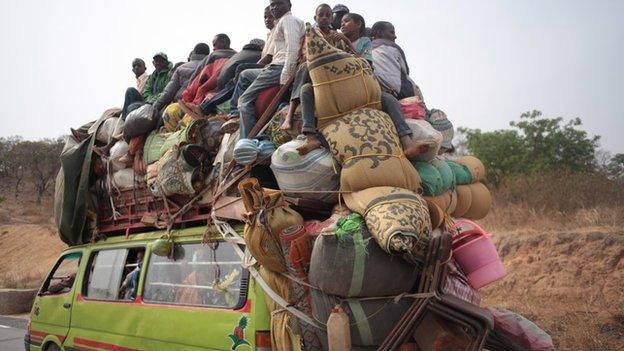
People packed onto the vehicles in order to get the safe passage offered by the AU peacekeepers
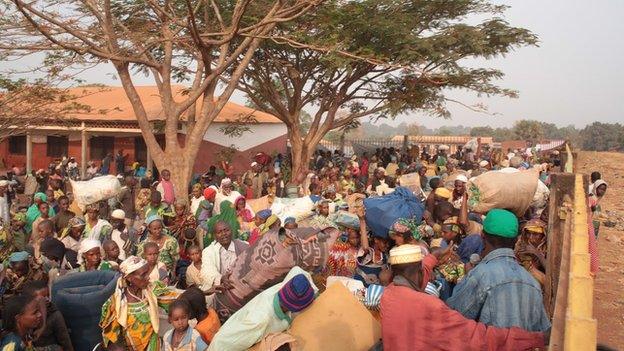
At points along the way, Muslims had gathered wanting to join the convoy
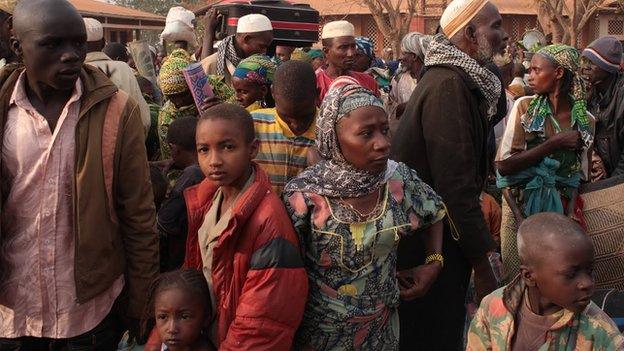
There were desperate scenes as everyone tried to get a place
Whenever they heard the sound of vehicles, a few would rush out to the road - often looking exhausted and malnourished - to ask for help and to see if they could squeeze into a truck or car.
At the start of the journey, we had about 150 Muslim evacuees and the number grew to 2,000 by the end.
At the church in Baoro we came across a large group of Muslims who wanted to join the convoy.
They were crying and begging and pleading as they are told there were not enough places left for all of them.
"I have come this far, maybe Allah decided this is where I'll finally meet my fate," said a distraught old man as the convoy was about to leave without him.
I began to plead with the Rwandan commander on his behalf, but as I did, a woman came up to us with three very tired-looking children.
She pointed at one of her daughters who had a machete wound and cried: "Whoever wanted to do this will accomplish it if I am not on the truck."
She described how anti-balakas posed as worshippers and once inside the church compound, lashed out at children with machetes they had hidden in their jackets.
The family was allowed to join the convoy, but the scene of those left behind haunted me as we spent that night sleeping out on the tarmac road.
Shot-out tyres
Along the route, the anti-balakas had set up more than 20 roadblocks with the intention of stopping and killing any Muslims trying to escape.
The peacekeepers made sure that did not happen, destroying the barriers and disarming the militias.
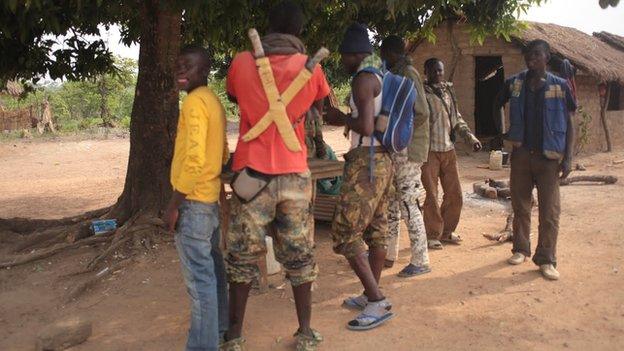
There are anti-balakas present across the country, on the look-out for Muslims
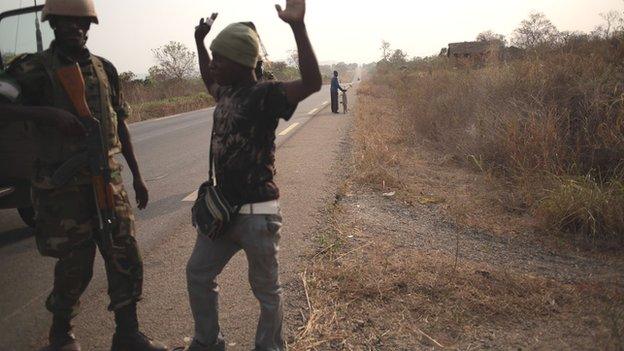
The AU peacekeepers try to disarm any that they come across
As the convoy - which stretched back about 3km and had swelled to 110 vehicles - neared the border just after sunset, the convoy commander had not lost a single person, but then an anti-balaka militia made their final attempt.
An hour-long heavy exchange of fire ensued.
Despite fighting in darkness, the peacekeepers overpowered the militia - 10 people were killed including seven militiamen, two evacuees and a truck driver.
With some trucks rolling on shot-out tyres, the convoy finally crossed the border into Garou-Boulai.
'Vital importance'
The evacuees disembarked for a UN refugee agency reception centre where some would be transferred to two dedicated camps inside Cameroon.
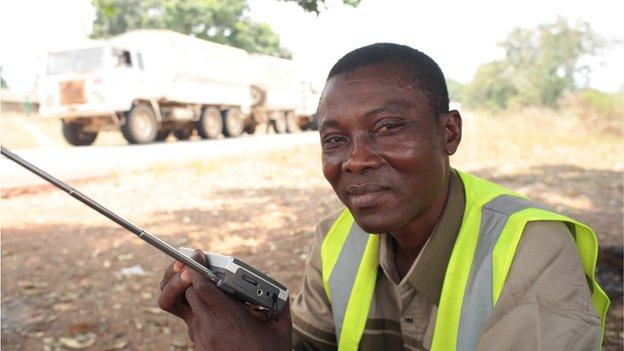
The drivers must make the dangerous return journey too
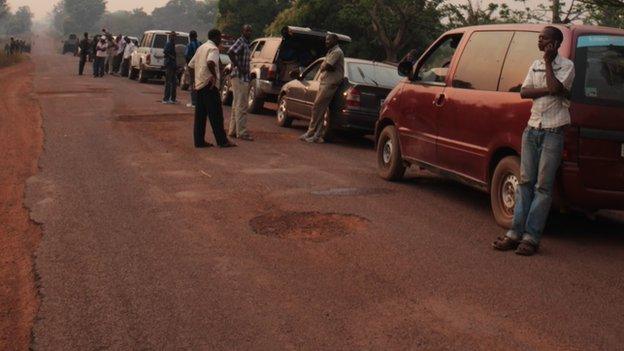
The convoy left Bangui with 77 vehicles; it had risen to 110 by the time the convoy got to Cameroon
Many others, however, intended to make their way to stay with relatives.
For the AU peacekeepers, there was a day's break, giving time for other trucks - from aid agencies and the CAR government - to join them to make the return journey loaded with food and supplies.
"It is a major operation… and is of very vital importance to the economy of this country," AU commander Maj Gen Martin Tumenta told the BBC.
It was another slow-going trip - allowing for breakdowns, roadblocks and more exchanges of fire with the anti-balakas - until we rolled into Bangui, which was eerily calm despite the tensions threatening to boil over.
However, for the peacekeepers, it was another difficult and life-saving mission accomplished.
